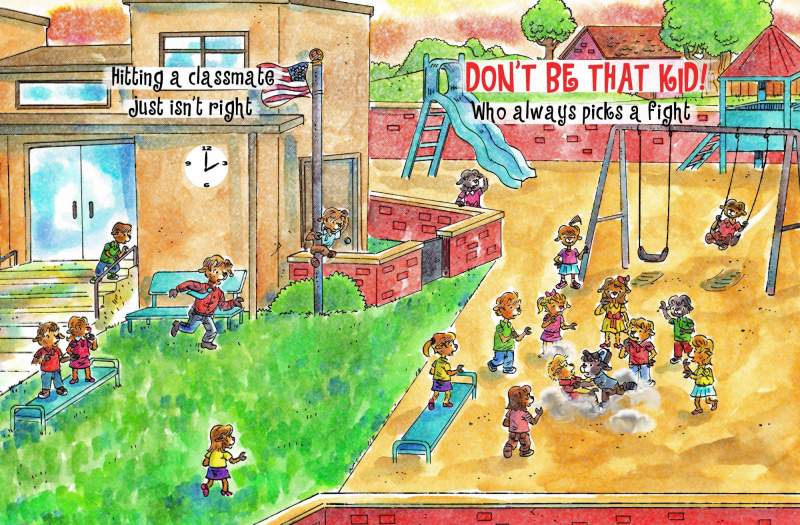
Grades K-1
Discuss the fact that fighting never solves problems and there are good ways that problems can solved. For example, understanding your feelings and being able to express your feelings to a friend or an adult could help you solve a problem. Have the class make a list of feelings (happy, sad, angry, upset, confused, hurt, etc.) and list them on chart paper. Afterwards, write each feeling on a sheet of paper and distribute it to the students. Have them draw an appropriate face to match each one. Afterwards, students role-play how to act when they have different feelings.
Grades 2-3
Discuss the importance of learning self-control and the fact that students have control over their own words and actions. Ask students to list ways that they can solve problems to prevent improper behaviors like being mean, fighting and name-calling. Afterwards, students will create and illustrate a Problem Solving Deck of 10 Cards. Some examples are: (1) Ask for Help; (2) Apologize; (3) Walk Away; (4) Count to 10; (5) Ask Them to Stop; (6) Ignore Them. Teachers can remind students to use the cards as reminders and problem solving tools as behaviors and concerns surface in the future.
Grades 4-5
Discuss the importance of being able to express yourself in order to solve problems and prevent arguments and fighting. Introduce the concept of "I-Messages". Explain that sometimes we feel upset by things someone else has done and we should be able to discuss it with that person. We need to tell them how we feel, what upset us and what we want to see happen. Using "I-Messages" allows us to talk about an issue rather than calling people names or fighting with them. Distribute a sheet of paper with the I-Message formula written on it: (click here)


